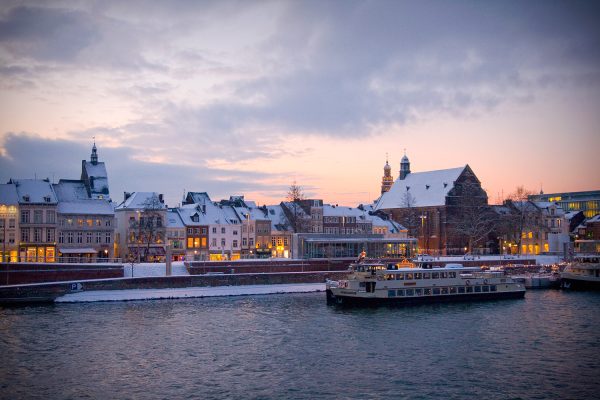
Support for the nationalist Freedom Party rises the farther away one travels from the commercial and political heartland of the Netherlands on the North Sea coast, a recent survey shows.
The anti-EU and anti-immigrant party led by Geert Wilders receives around 20 percent support nationwide, but there are regional differences.
I&O Research found that the party is most popular in the border regions of Groningen, Limburg and Zeeland.
In Noord-Brabant, the country’s third largest province and home to technology hubs Eindhoven and Tilburg, Freedom Party support hovers around 15 percent.
The party struggles to get more than 10 percent support in the rest of the country. It is least popular in the “Randstad” provinces of Noord-Holland, Zuid-Holland and Utrecht, which is where the major cities are located.
It’s not the economy
There seems to be a paradox: A nativist party that wants to take the Netherlands out of the European Union is popular in the very areas that are economically the most integrated with the country’s neighbors.
The economy of Groningen, in the northeast, is dominated by the exploitation of natural gas. The national government has invested in the development of the Eemshaven, close to the German border, as a hub for energy and data storage. These industries are dependent on trade.
Limburg, boxed in between Belgium and Germany, is cosmopolitan on its face. It hosts a major European logistics hub, manufacturing and international health industries. Nearly half of the students at Maastricht University are foreign.
Zeeland’s economy is more agricultural, but the city of Vlissingen hosts a large container terminal and heavy chemical industries.
Economic indicators for the three regions vary little from the national averages. Zeeland has seen lower growth than the rest of the country, but GDP per capita in Groningen is relatively high and joblessness in Limburg is relatively low.
Left behind
The Freedom Party’s popularity in these regions has less to do with economic neglect than a feeling they’ve been behind left.
Before natural gas was discovered in 1959, Groningen was an economic backwater. Gas has made the province wealthy, but most of the proceeds have been invested in other regions. Drilling is blamed for causing small earthquakes, adding to a sense that Groningen has been taken advantage of.
Limburg used to be the industrial heartland of the Netherlands. Manufacturing and mining made Maastricht one of the wealthiest cities in Europe. Its shopping streets have more in common with the nineteenth-century boulevards of Antwerp and Brussels than the canals of Amsterdam.
The collapse of the mining industry in the 1960s and 70s changed everything. The state tried to keep manufacturing afloat, but halfhearted industrial policy only delayed the inevitable. Only in the last couple of decades has the former duchy found its bearings again, but there isn’t much room in the new economy for the low-skilled.
Zeeland once vied with Holland for fishing and trade but hasn’t been a commercial powerhouse in more than a century.
In all three regions, Amsterdam and The Hague feel far away.
The fact that Groningen and Limburg have their own dialects, but not a recognized language like Friesland, adds to the sense that they’re not seen as equals to the Randstad.
Expression of discontent
There are parallels with other countries: depleted English mill towns voting for UKIP; Appalachia and Rust Belt states electing Donald Trump; postindustrial northern France supporting Marine Le Pen.
The Limburgish roots of Freedom Party leader Wilders are an asset in the south, which used to vote as a block for the conservative Catholic People’s Party before it merged into the middle-of-the-road Christian Democratic Appeal in 1980. Most other major-party leaders were born in the Randstad. (Sybrand van Haersma Buma, the current Christian Democrat leader, is Frisian and a Protestant.)
As with support for Brexit, Trump and Le Pen, Wilders’ popularity in the Netherlands’ outlying provinces shows that voting for him is not always an endorsement of his policies. More often than not, it’s an expression of discontent with the status quo and mistrust of the metropolitan elite.
